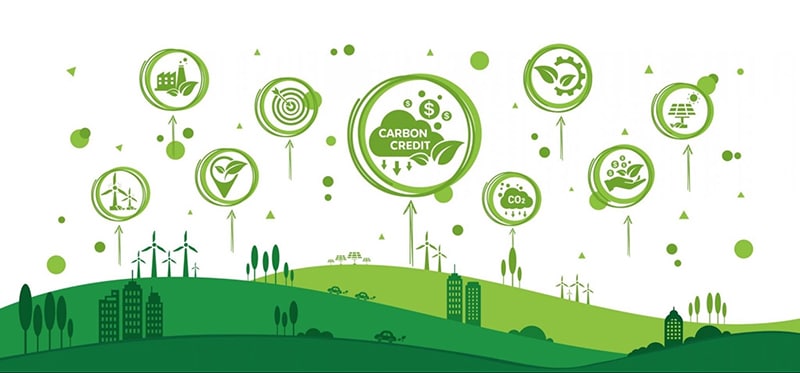
Do you also wonder why the air around you does not seem as clear as it was during your childhood? What has made the rain droplets so toxic? Why has the temperature become unbearable and the weather uncertain? What is killing marine life, and why are the glaciers melting?
That’s the picture of the present world where excessive carbon emissions are destroying natural blessings and harming the environment. Carbon emissions are now 50% more than before the industrial revolution. It is all set to make life more miserable if we do not work for Carbon Emission Reductions.
Consequences Of Rise In Carbon Emissions
In this era of rapidly growing demands, fast fashion, and changing trends, people deprive themselves of a healthy environment, a favorable climate, and a brighter future. Consequences of the rise in carbon footprint include:
- Global warming: Global warming is the most threatening negative impact of carbon footprint. Global warming causes the glaciers to melt, makes the temperature unbearable, and results in the extinction of polar animals.
- Climate change: Drastic change in the climate is another issue caused by excessive carbon footprint. That’s the reason why the weather and temperature are so unpredictable nowadays.
- Urban pollution: Air pollution and acid rain are also caused by carbon released in the air. It causes several health issues, including asthma and cancer.
- Marine life depletion: Coastal and ocean acidification caused due to carbon footprint kills marine life and impacts the food chain.
Tips To Reduce Carbon Emissions
Production, transportation, and industrialization are required for a comfortable lifestyle. However, it is possible to fulfill the necessity while minimizing its harmful impact. Let’s see how you can contribute to carbon emission reduction.
- Renewable energy: Switching to renewable energy like solar power for electricity reduces the burning of fossil fuels and minimizes the carbon footprint.
- Reusing and recycling: If you reuse and recycle the things you have instead of throwing them away and buying new ones, you can reduce the demand for production. Less production will cause less carbon footprint.
- Vocal for Local: Promoting locally produced or grown products instead of exported ones will reduce the transportation involved in importing and exporting.
- Reduce consumption: When you exchange, borrow, rent, or buy second-hand, you reduce consumption and minimize your carbon footprint.
- Use public transportation: Public transportation or bicycles is a simple and effective way to reduce carbon emissions. Carpooling or walking to cover short distances also helps in reducing the carbon footprint.
- Waste management: Waste management at landfills causes high carbon dioxide release. Composting at home or recycling waste reduces carbon emissions.
- Purchase carbon credits: You can also purchase carbon credits to offset the carbon emissions caused by your activities and fund the project that reduces your carbon footprint.
Wrapping up
Industrialization and our daily practices are mainly responsible for the rising carbon footprint, but its consequences are borne by every living species, especially marine life, and polar animals. Reducing carbon emissions is a responsible step towards a sustainable and happy future.
Climate Carbon works towards carbon emissions reduction to establish a safe environment. We provide a carbon credit marketplace, carbon footprint calculator, carbon offsetting services, and funding for environment welfare projects. Contact us to reduce your carbon footprint.

